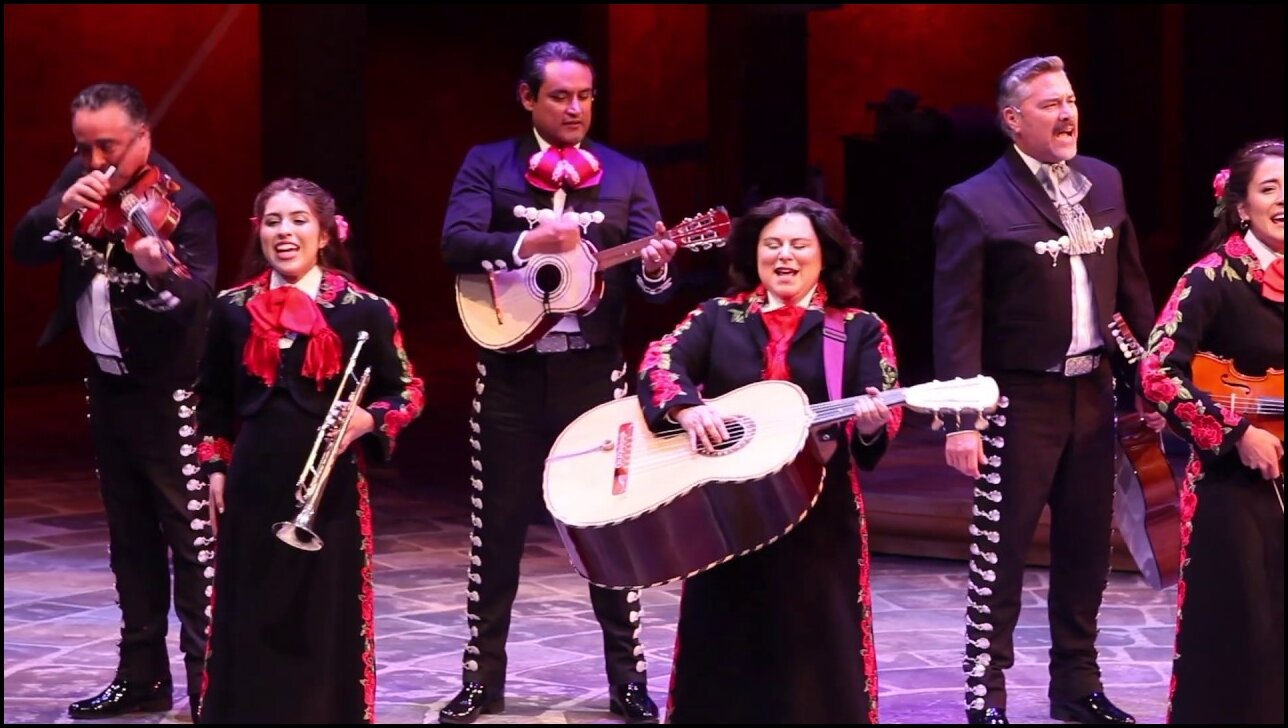Ed and I spent 19 years in Tucson and managed to escape most mariachi performances. You know, the tinny, chicken-scratch music performed by men in sombreros and black suits with copious sliver buttons – the Mexican version of cockney pearlies. Last week, I paid to hear that same music in Chicago.
American Mariachi at the Goodman Theater—part of Destinos: 4th Chicago Internation Latino Theater Festival—is a wisp of a play: the plot is predictable, the music is predictable, and the performances caricatures. That does not make it all bad. It was good to sit in a theater, albeit 1/3 full. It was good to hear the familiar music – though the plot development requires some awful playing. It was good to see performers and theater staff making a living doing a “thing” we love.
My most important takeaway from American Mariachi is the ethnographic/historical understory of the plot. The play is billed as taking a stand against stereotypes; mariachi is all about men. When women wanted to perform, all hell broke loose because mariachi is passed from father to son—the songs, the instruments, the costumes. Sons learn by listening to fathers, uncles, and brothers—there were no charts. That may still be the way it is in some families today. But, thanks to the Tucson International Mariachi Conference and a similar conference in San Antonio, mariachi has become a quintessential Mexican-American tradition. Student groups are promoted heavily in junior and high schools throughout the southwest and in predominantly Mexican-American schools everywhere. Women wear the traditional costume, but with a long black skirt, resplendent with silver buttons down the sides.
U.S. public schools have traditionally taught “white” culture. E.g., George Washington and the Founding Fathers are heroes of independence. Perhaps no mention of their stands pro or anti-slavery. Civics teaches how the government is organized, but may not study the history of voting rights. Immigration means we are a nation of immigrants, not the rights of Native Americans or the status of immigrants of color.
I hope that much of this has changed, but you likely can’t count on classroom teaching to provide cultural context for all students. Enter such curricula as MAS (Mexican-American Studies) and Mariachi after curricular groups. These programs build self-esteem and provide supportive environments for Mexican-American students. Viva Mariachi!


